Båstad, Sweden
Review: Norrvikens Trädgårdar
The Nordics • See & do • Review: Norrvikens Trädgårdar in Båstad, Sweden
What are the gardens in a nutshell?
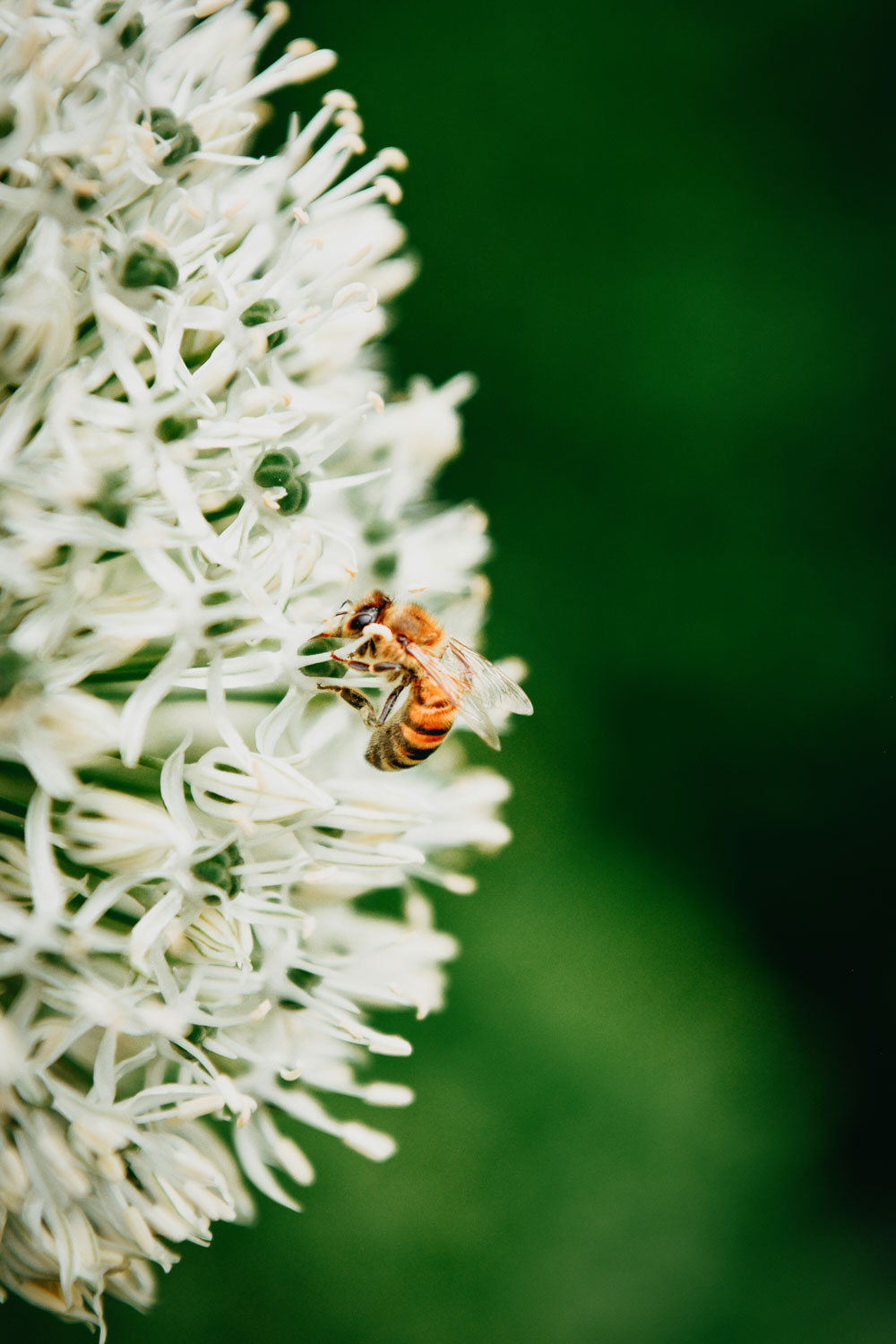
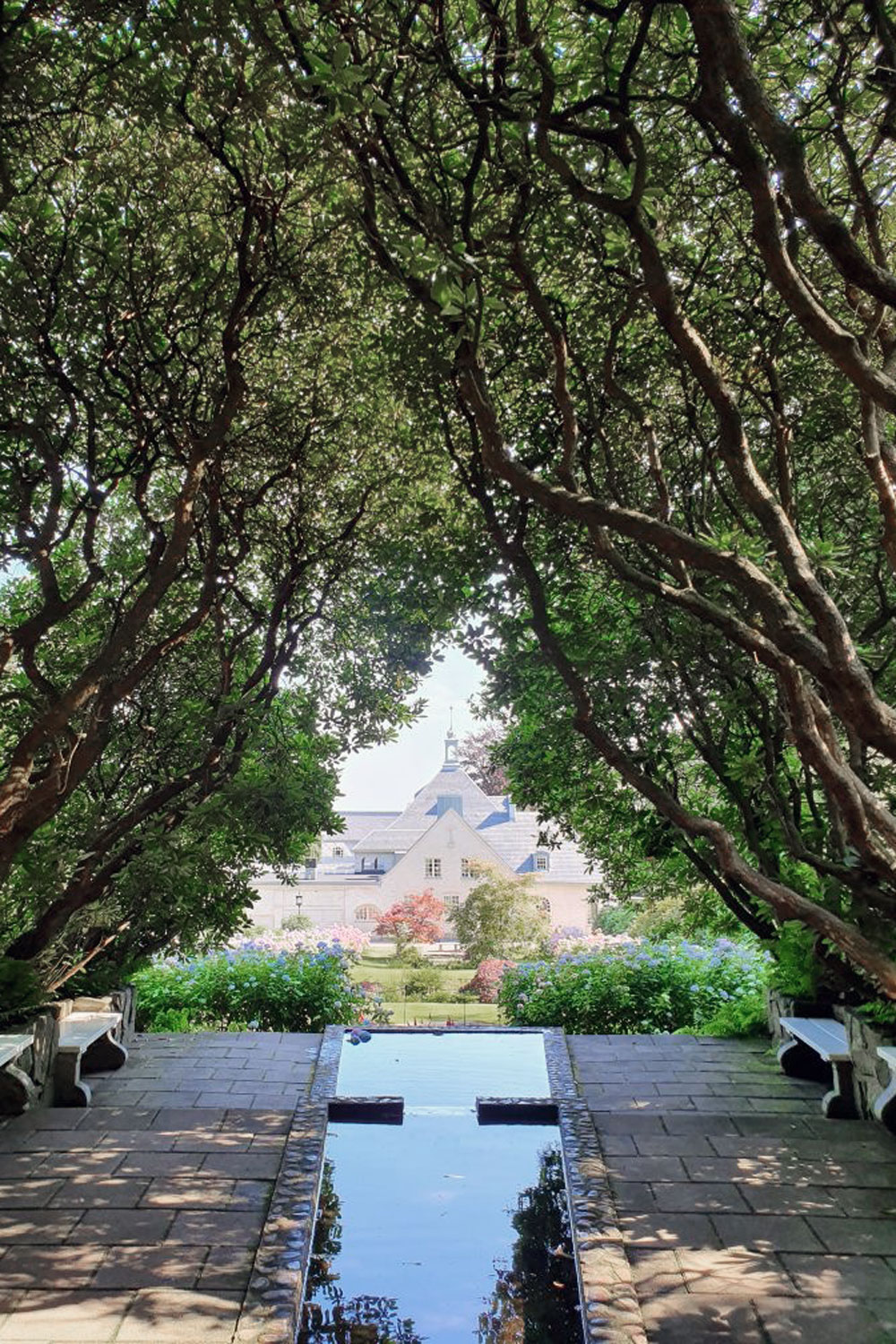
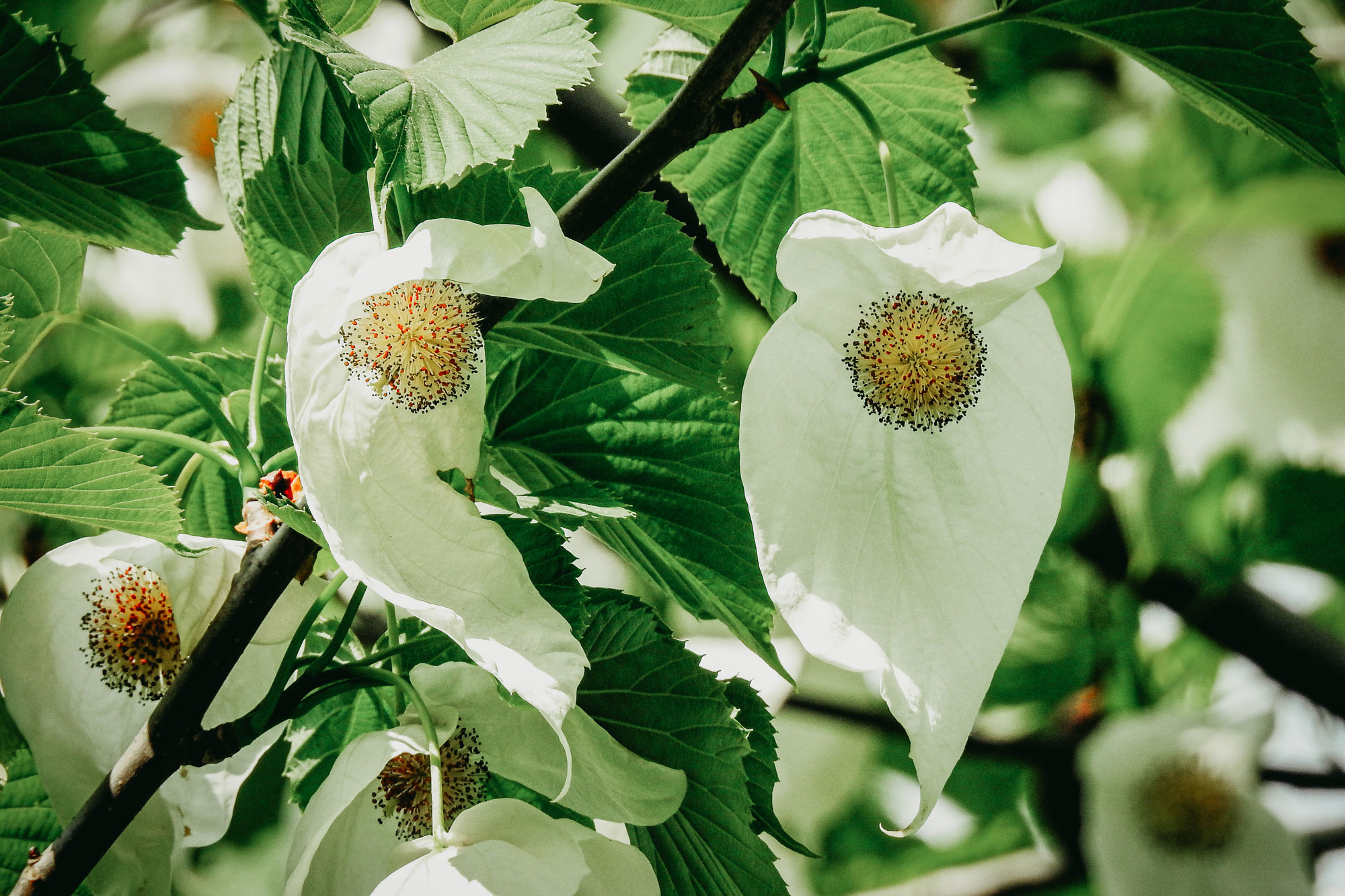
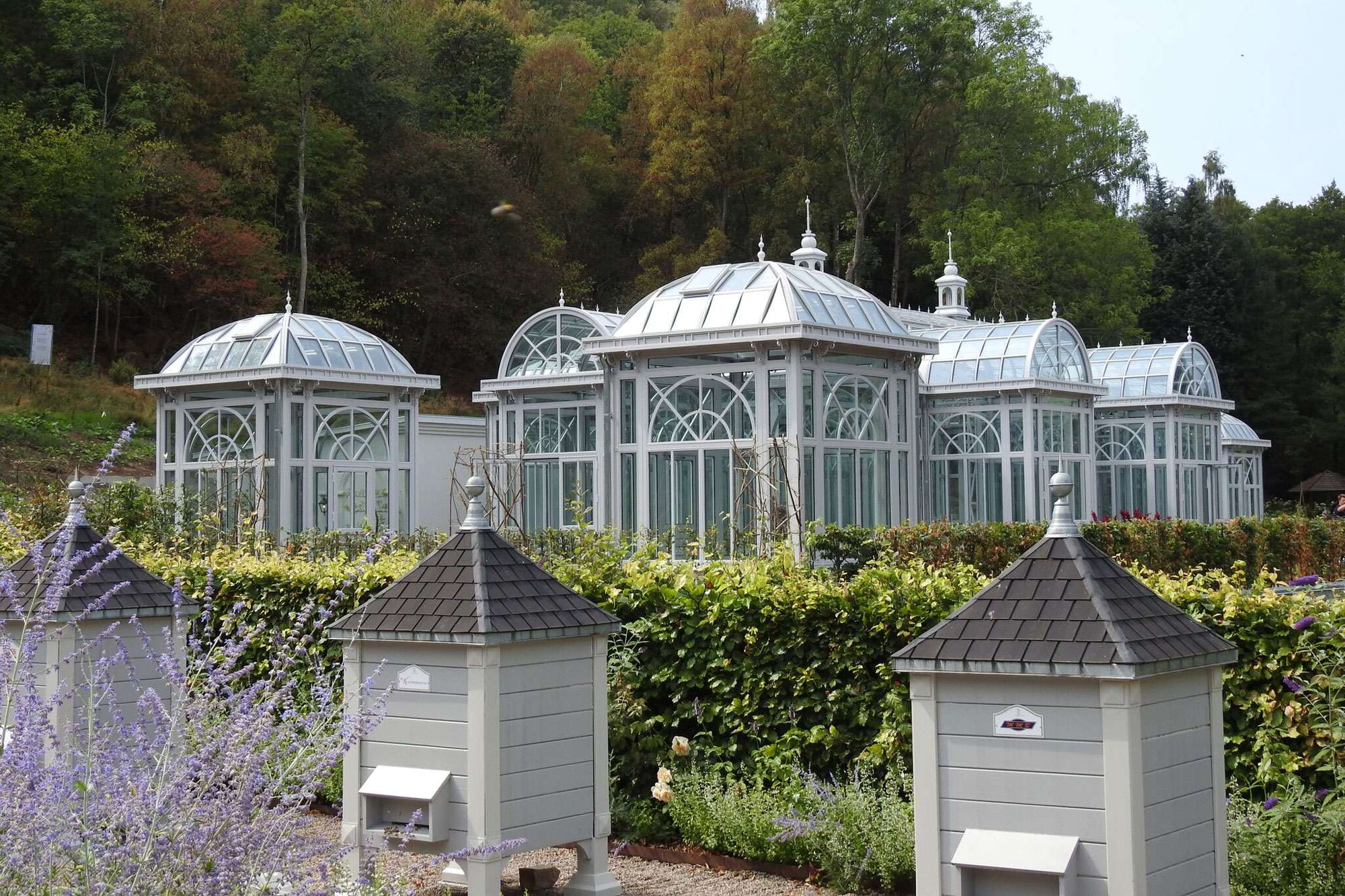
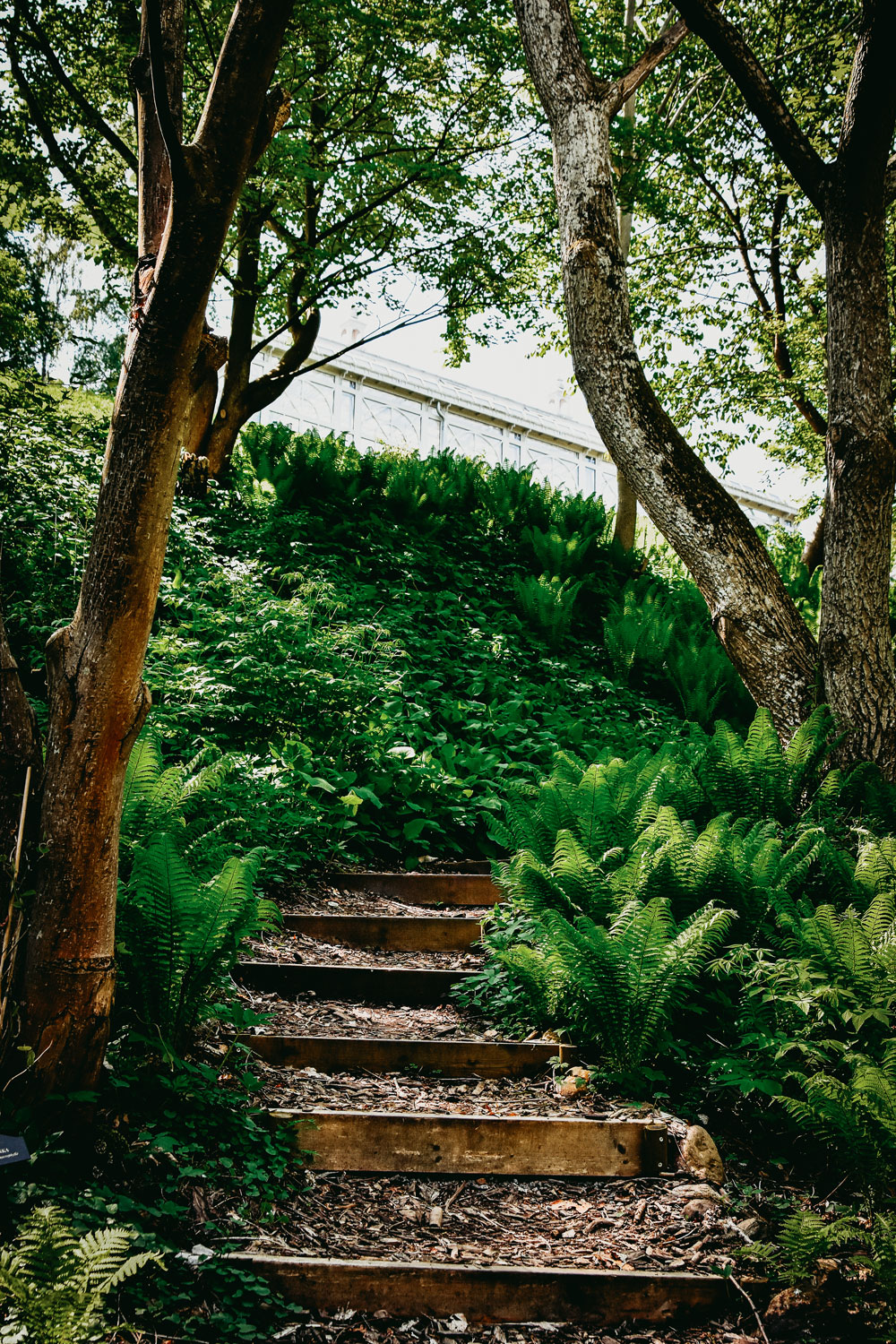
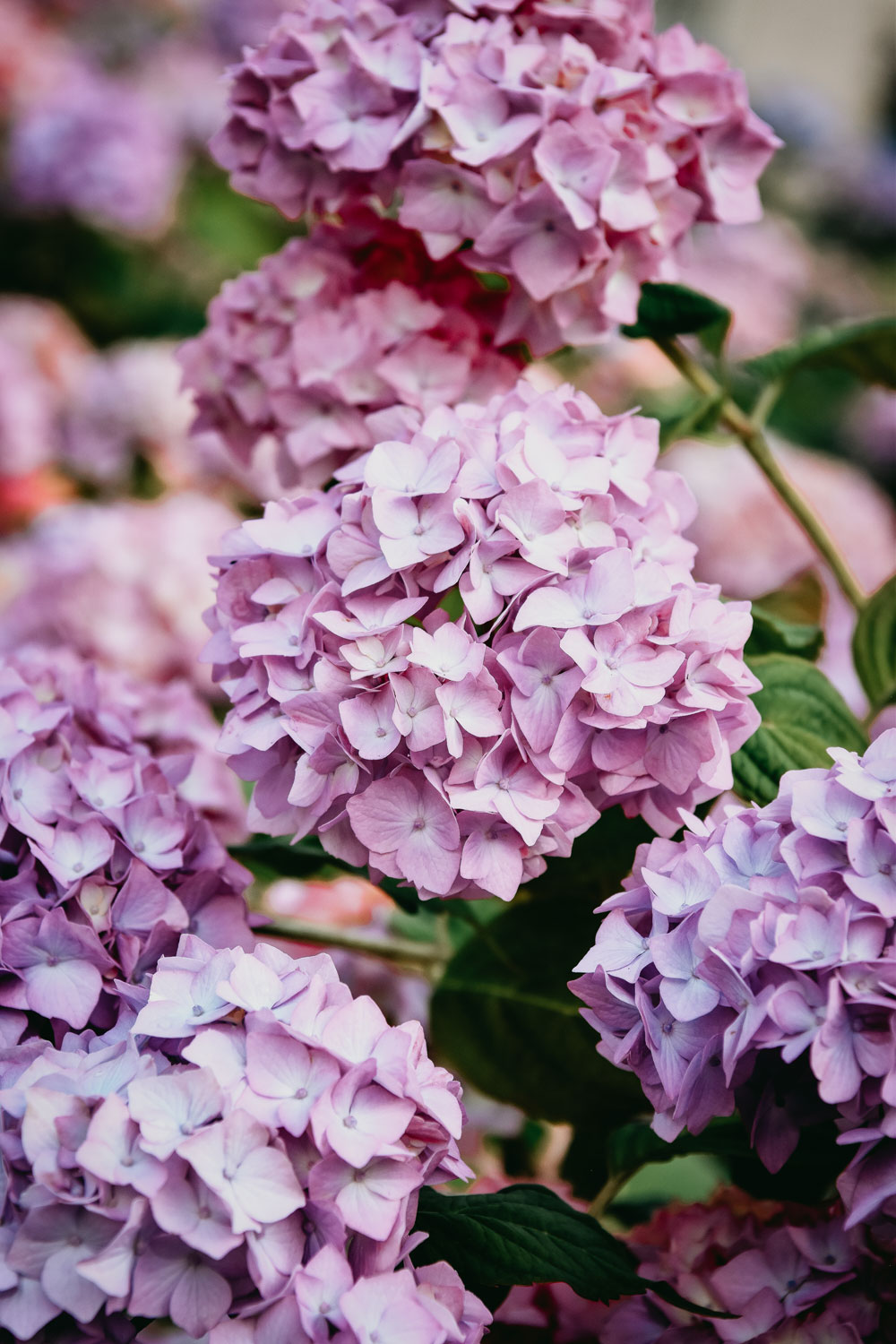
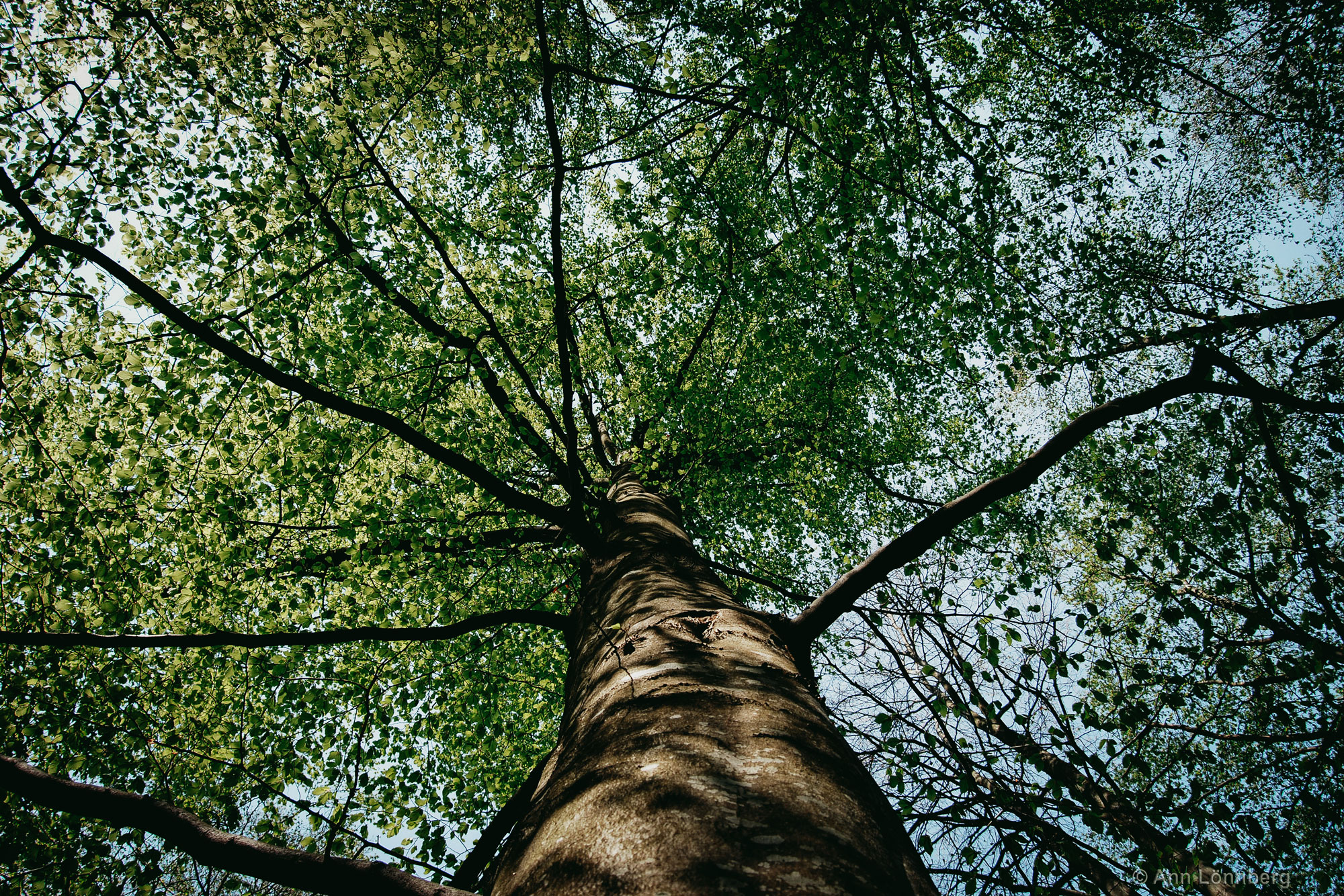
What is showcased?
Norrvikens Trädgårdar presents a curated tapestry of garden styles, each reflecting distinct historical periods and cultural influences. This living museum of horticultural artistry invites visitors to traverse time and geography, experiencing the evolution of garden design developed and executed under the challenging conditions of a northern climate.
On our visit, we had some beautiful sunny spring weather with a still-cold breeze from the bay, but set out to explore the gardens at a leisurely pace after visiting Ravinen Kulturhus.
Following the raked paths and manicured borders, our first stop was Halmhuset – a black cottage with a thatched roof that houses permanent and temporary exhibitions about the gardens. Instead of continuing straight to the main focal point – the Italian-inspired villa and formal gardens – we meandered up the left slope, through leafy woods, following the path over mossy ground towards the water gardens and water temple at the top of the hill. Down through the Romantic Rhododendron Garden, we continued towards the orangery, which was unfortunately still closed to visitors for the season. Instead, we made our way down the hill towards the water.
Even in April, the impact of the Japanese and Oriental gardens is striking in all their austere beauty. These are also the gardens closest to the Orangeriet restaurant – but more on that later.
The Baroque Garden
Embodying the grandeur of 17th-century European formal gardens, the Baroque Garden at Norrviken features symmetrical layouts, meticulously trimmed boxwood hedges and ornamental parterres. Reflective pools and classical sculptures enhance the sense of opulence and order, inspired by Italian Baroque garden design.
The Renaissance Garden
Inspired by the Italian Renaissance, this garden showcases geometric precision and harmony. Enclosed by dense hornbeam hedges, it features intricate boxwood patterns and gravel pathways that lead to focal points such as fountains and statues, exemplifying the humanistic ideals of balance and proportion.
The Japanese Garden
It is easy to miss, but well worth the walk down: the Japanese Garden offers a tranquil retreat of natural beauty and simplicity. Elements such as a meandering stream, arched bridge, cherry trees and stone lanterns create a meditative atmosphere, reflecting the principles of Japanese garden design that celebrate harmony with nature.
The Romantic Garden
Drawing inspiration from English landscape gardens, the Romantic Garden at Norrviken features winding paths, lush plantings of mature rhododendrons and secluded nooks. The design encourages leisurely exploration, with surprises like hidden benches and flowering shrubs that evoke a sense of romance and nostalgia.
The Water Garden
This garden integrates dynamic water features, including cascading streams and reflective ponds, to create a serene environment. Plantings of Japanese maple and hydrangeas complement the water elements, enhancing the sensory experience and providing a habitat for local wildlife.
The North German Garden
Characterised by a central mirror pond that creates an illusion of infinite space, the North German Garden blends formal design with naturalistic elements. The garden’s layout directs the eye towards the horizon, where the pond appears to merge seamlessly with the distant sea, exemplifying the integration of landscape and design.
The Oriental Terrace
Perched above the gardens, the Oriental Terrace offers panoramic views of Laholm Bay. This area features a small temple surrounded by thyme beds and mosaic ponds, reflecting Eastern design influences and providing a contemplative space that connects the gardens to the broader landscape.
The Molin Garden Room
In addition to these historical gardens, Norrviken continues to evolve with new additions that honour its legacy while embracing contemporary horticultural practices. Recent developments include garden rooms inspired by Swedish garden designer Ulla Molin and plant explorer Tor G. Nitzelius, further enriching the diversity and educational value of the estate. We visited the gardens on a clear but cool pre-season day, which meant that some parts of the garden were off-limits and not yet in bloom – but nevertheless, it was a beautiful and highly inspirational experience.
Villa Abelin
At the heart of Norrviken stands Villa Abelin, the former residence of Rudolf Abelin and his family. Abelin found both his home and his life’s project just here, outside Båstad – drawn partly by his friendships with Ellen Key and Ludvig Nobel. Even then, Båstad was a popular seaside resort that attracted cultural figures and members of the social elite. Designed in a style reminiscent of Italian villas, the villa’s façade and symmetrical proportions provide a focal point amidst the diverse gardens.
Abelin’s design philosophy emphasised harmony between structured garden artistry and the surrounding natural landscape. Drawing inspiration from Italian Renaissance and Baroque traditions, he implemented a central axis with cross-axes, allowing for open sightlines and a sense of spatial rhythm. This approach creates a seamless transition between formal garden rooms and more naturalistic spaces.
Water features play a significant role in the garden’s design – not only enhancing its aesthetic appeal but also reflecting the sky and surrounding flora, thereby amplifying the sense of space and tranquillity.
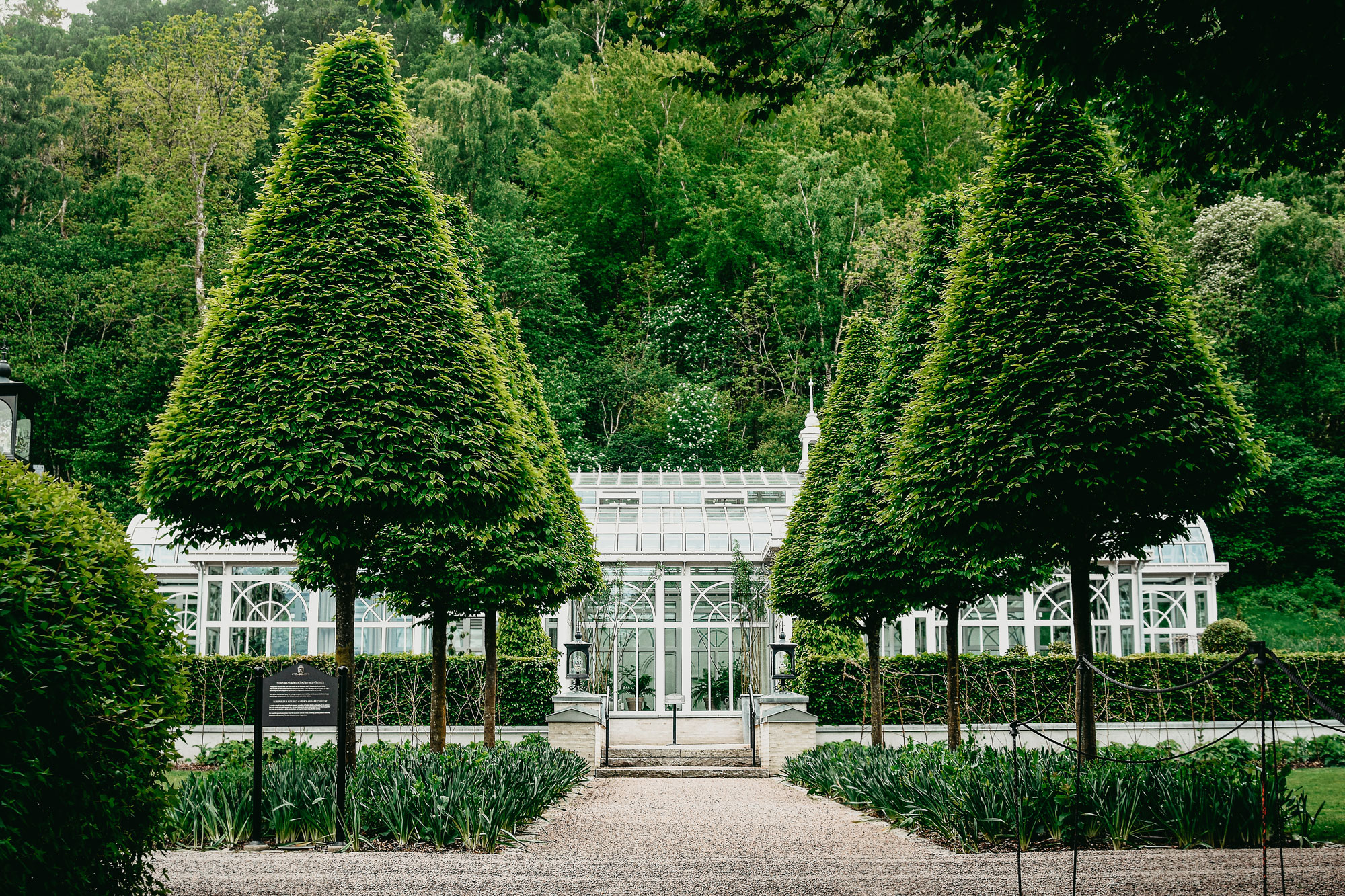
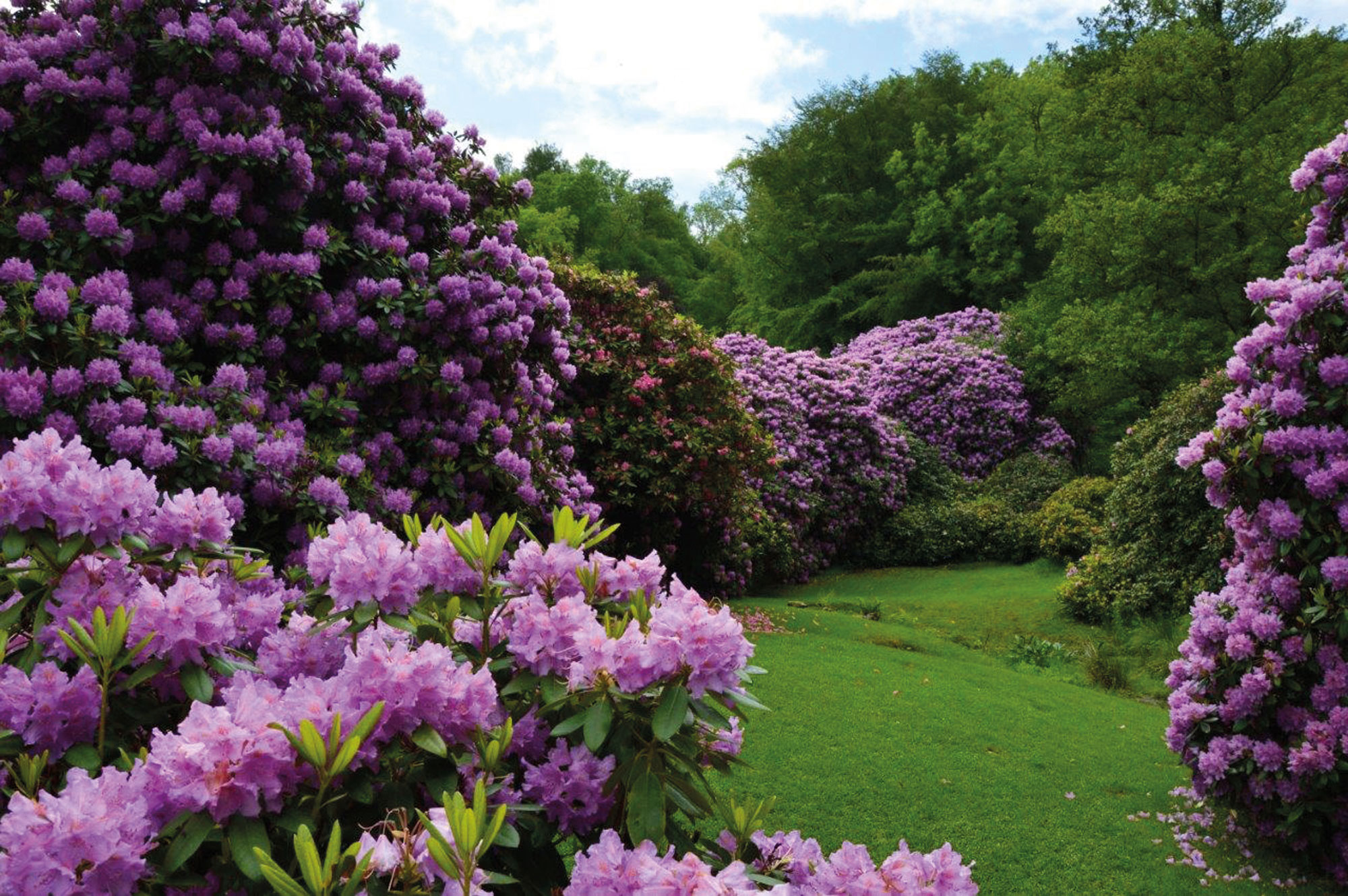
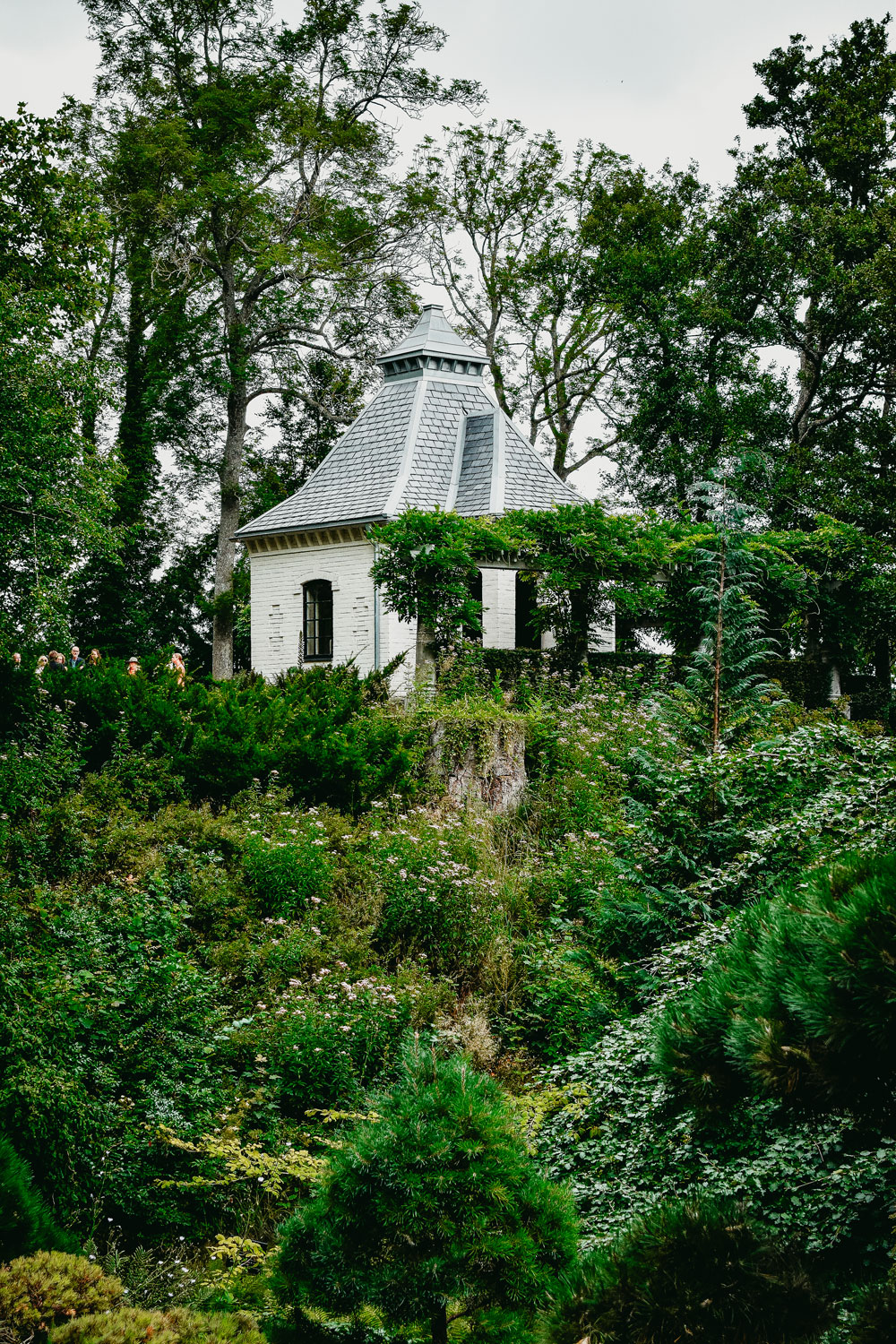
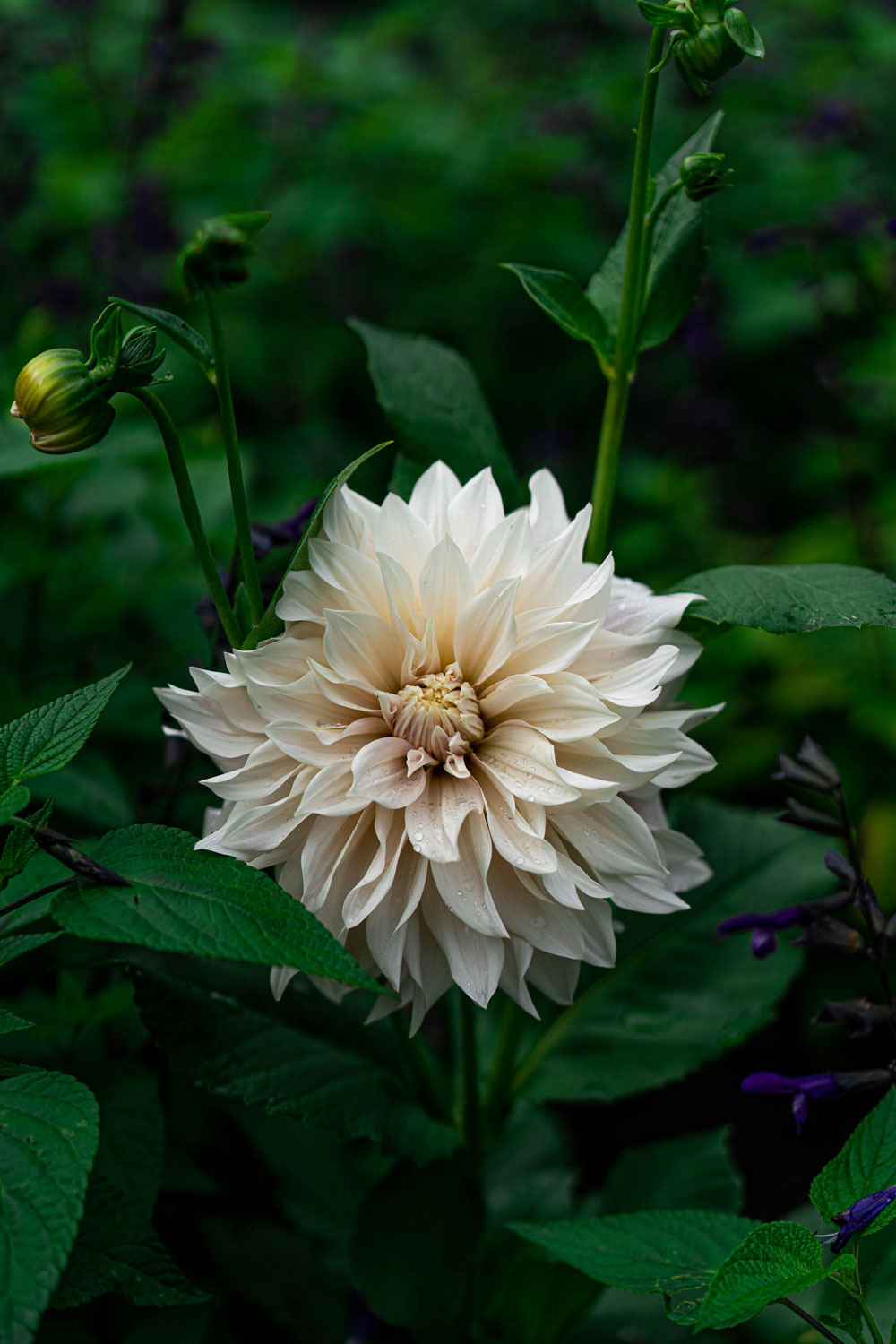
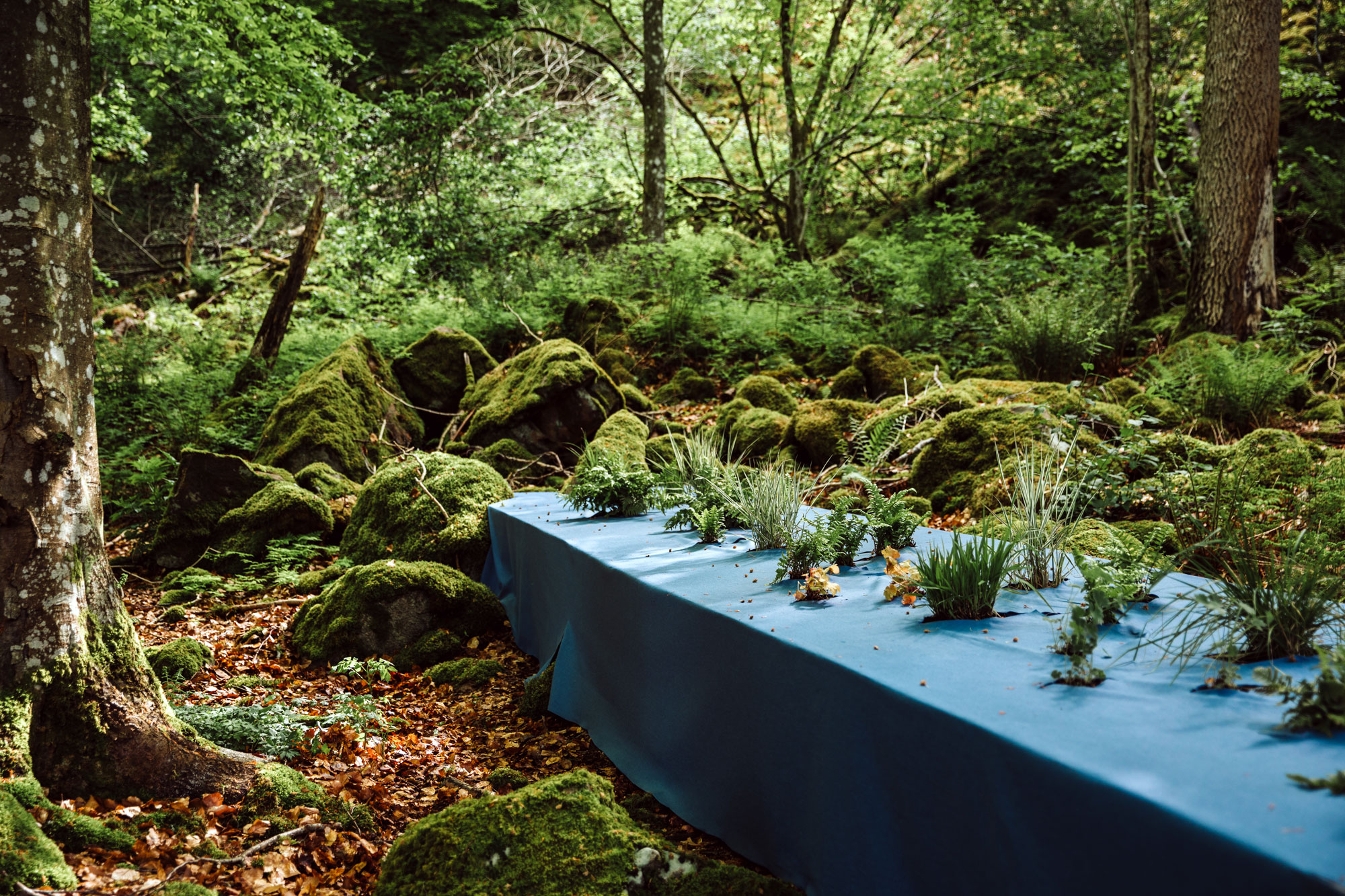
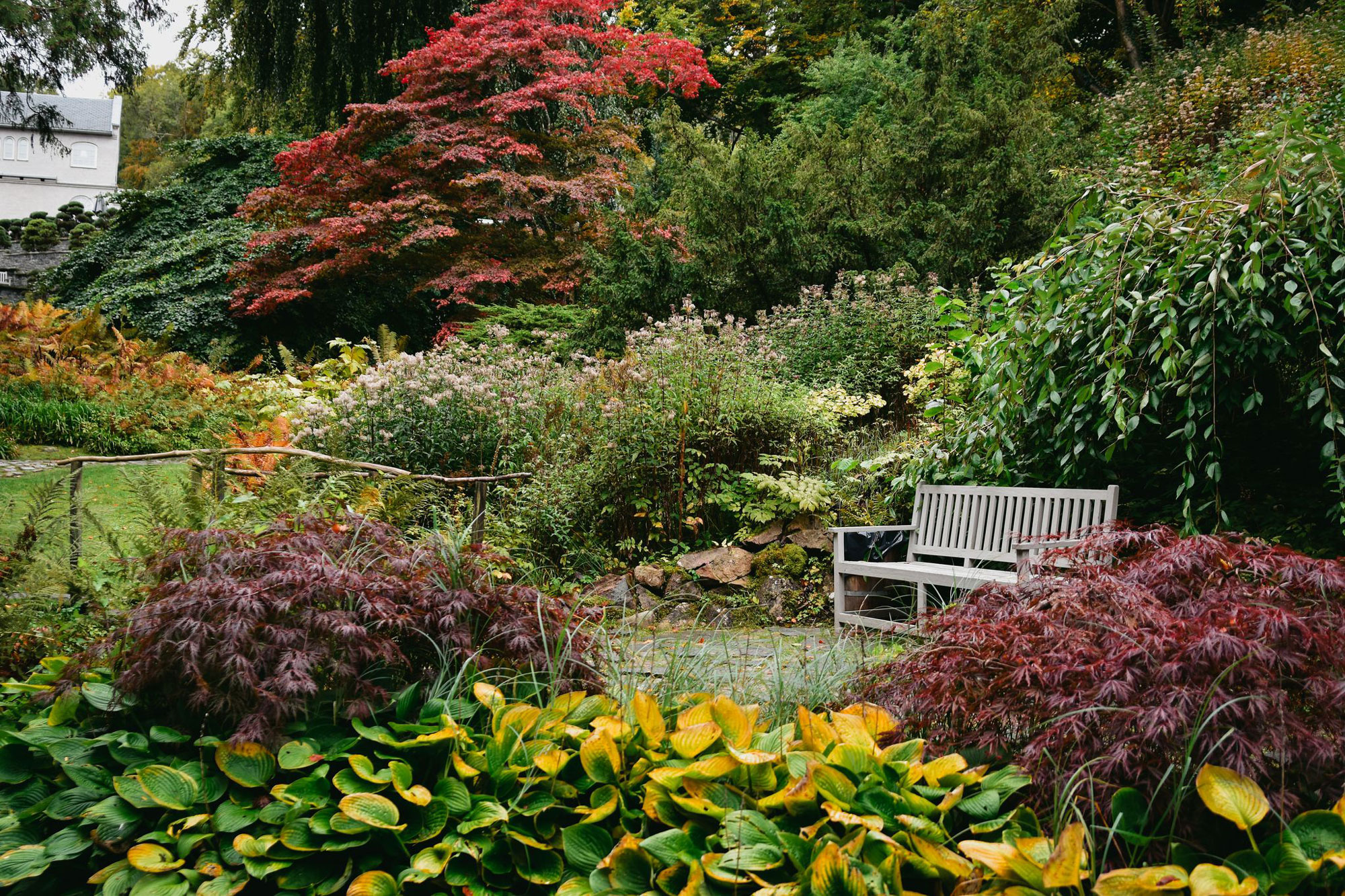
What else?
Norrvikens Trädgårdar extends beyond its historical gardens to serve as a vibrant cultural venue throughout the year. The estate hosts a variety of events and activities that cater to diverse interests, ensuring there’s something for every visitor. Guided tours are also available during the high season.
Events
One of the notable annual events is The Aurora, a prestigious Scandinavian Concours d’Elegance held in early July. It features rare cars ranging from historic beauties like Facel Vega to cutting-edge models from Koenigsegg. The Aurora attracts car enthusiasts and collectors from around the world, adding a dynamic flair to the serene gardens of Norrviken.
In addition to automotive events, Norrvikens Trädgårdar hosts Norrvikens Scen, a summer concert series that brings together some of Sweden’s most beloved artists. The estate also offers seasonal activities including garden tours, art exhibitions and workshops that align with the changing seasons – providing opportunities for visitors to engage with the gardens in fresh and interactive ways.
Eating and drinking
The gardens are vast and offer much to explore, regardless of your level of interest in botany. If you find yourself feeling peckish during or after your visit, Norrvikens Trädgårdar offers a range of dining experiences. At the heart of this culinary offering is Orangeriet Restaurang, located within Villa Abelin.
With its expansive glass panels, the restaurant blurs the line between indoors and the surrounding gardens. The menu is seasonally driven, featuring dishes made from locally sourced ingredients – including herbs and produce from Norrviken’s own gardens. While not extensive, the menu caters to carnivores, pescatarians and vegetarians alike. We enjoyed locally caught ling with asparagus, mussels and jalapeño, paired with a fruity beer from nearby brewery Skälderwiken.
For a more casual option, Salamander Café & Bar, also located in Villa Abelin, offers a selection of light meals, beverages and traditional Swedish fika, all served amidst the garden’s greenery.
Chocolaterian, located near the garden’s entrance, serves handcrafted pralines, sourdough pizzas, salads and gelato – ideal for a relaxed lunch or coffee break with views of Laholm Bay.
Shopping
Before ending our visit, we strolled through Butik Norrviken – an interiors shop with a curated selection of design objects, homeware, utensils, textiles, candles and more. We picked up a delicious jar of honey, produced just down the road. For antique lovers, the shop features handpicked furniture by Laserow Antiques, a well-known dealer with international reach.
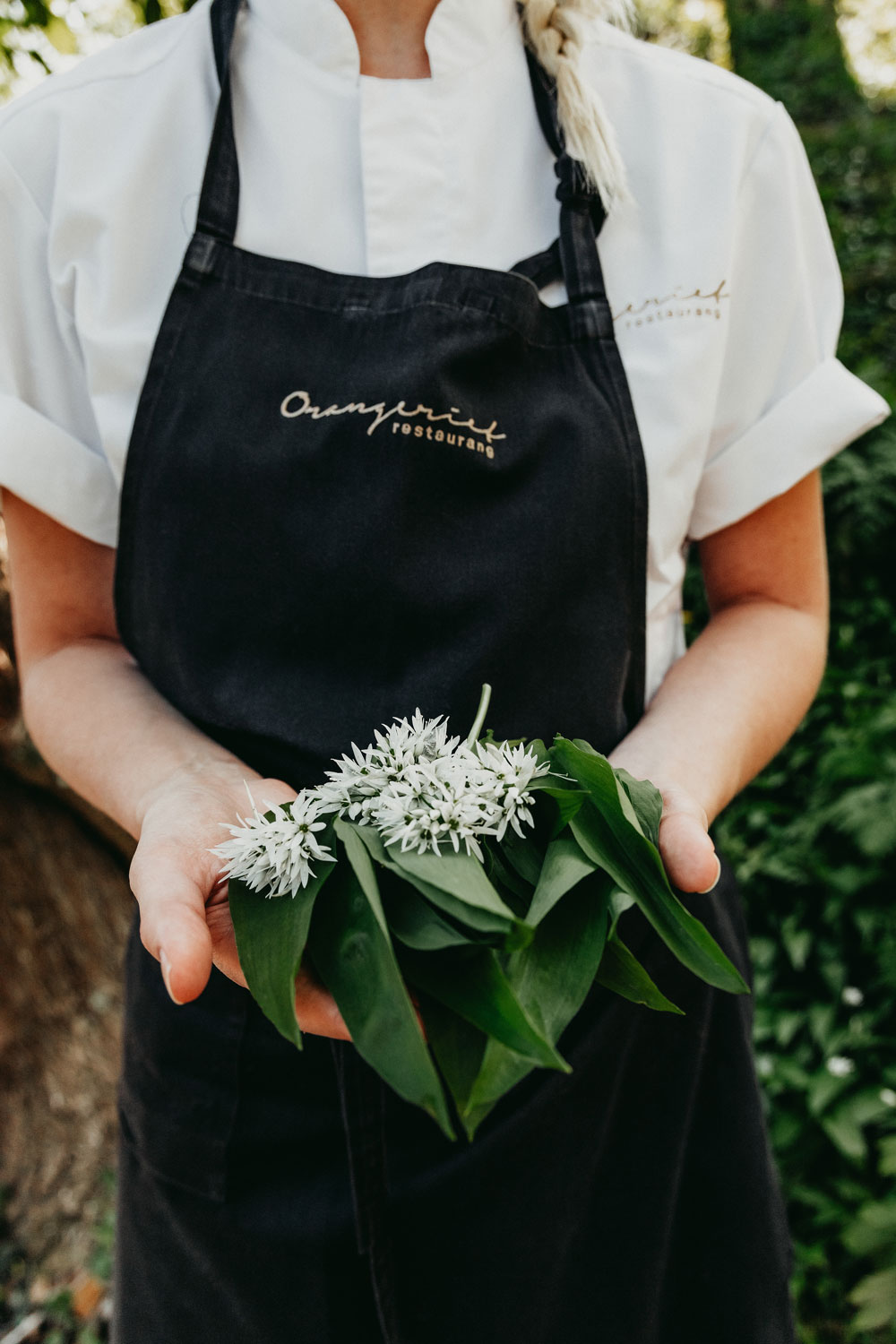

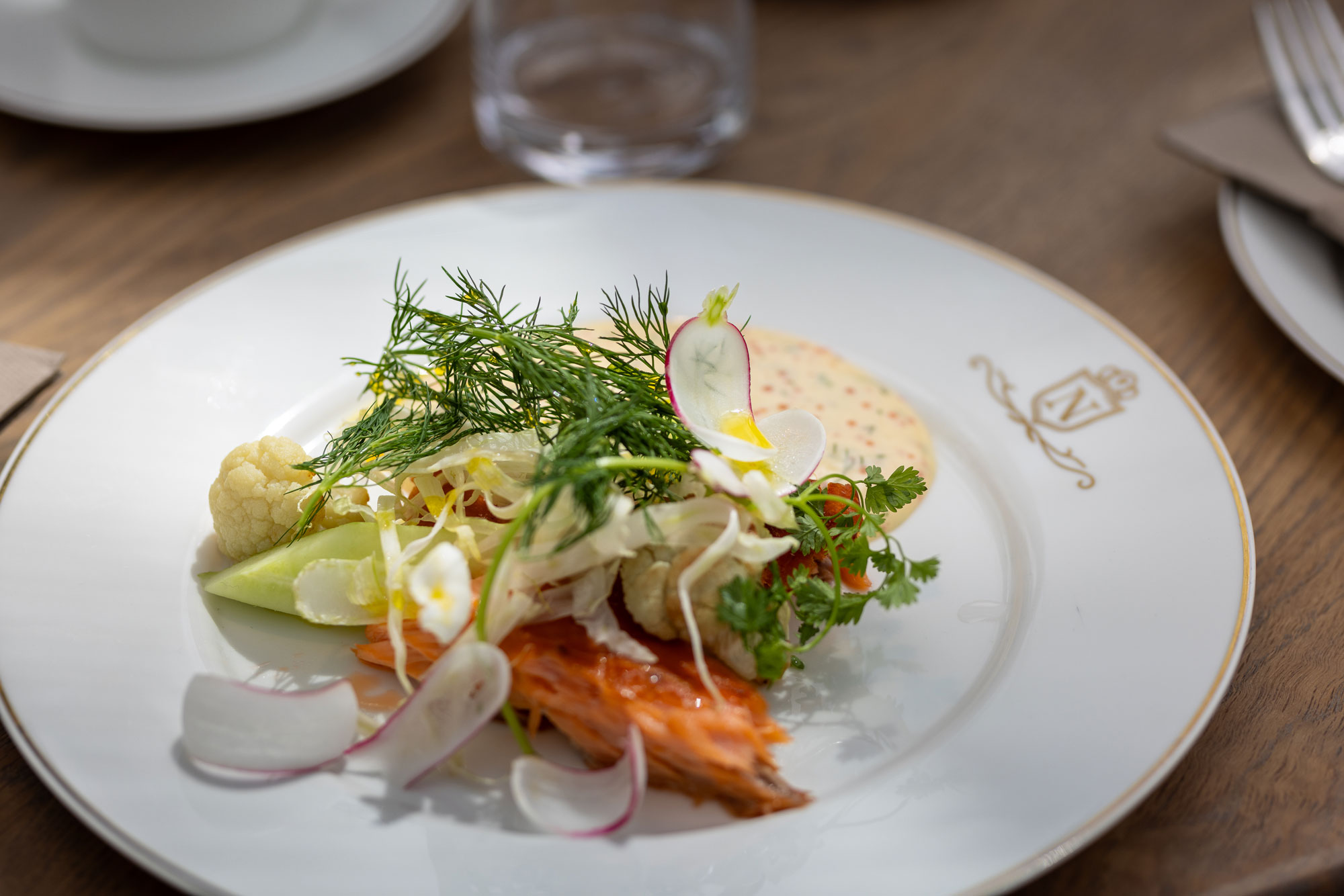
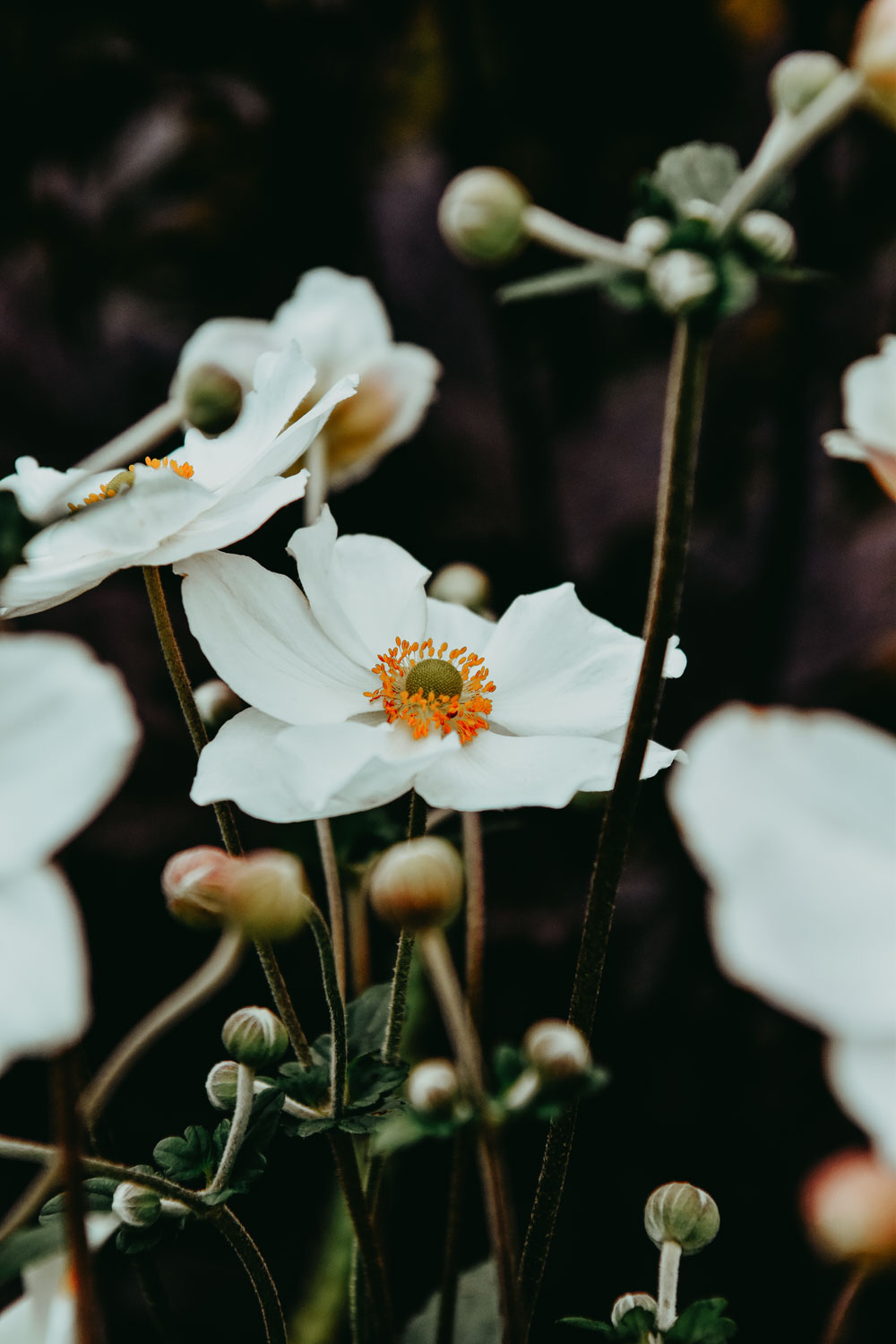
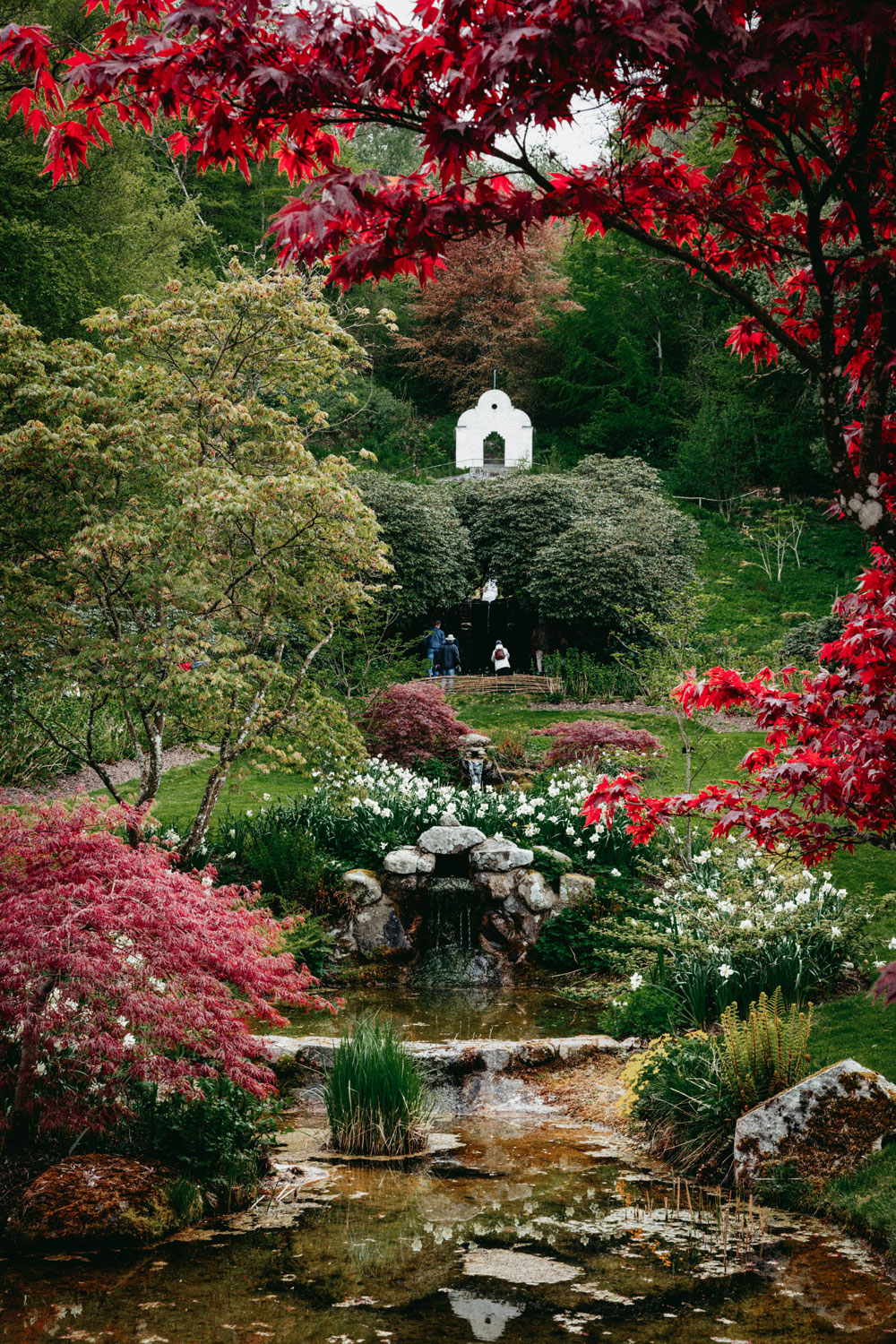
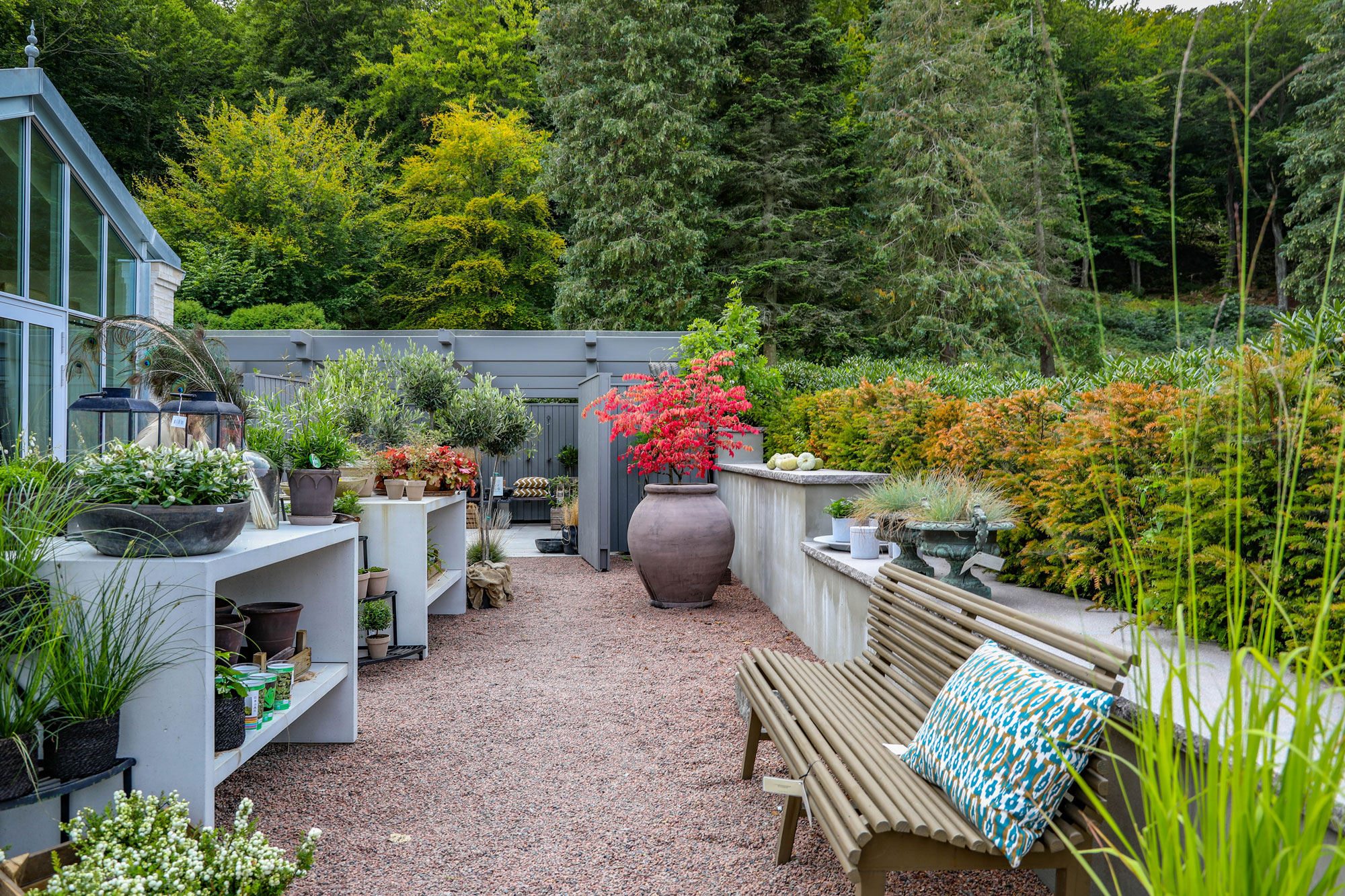

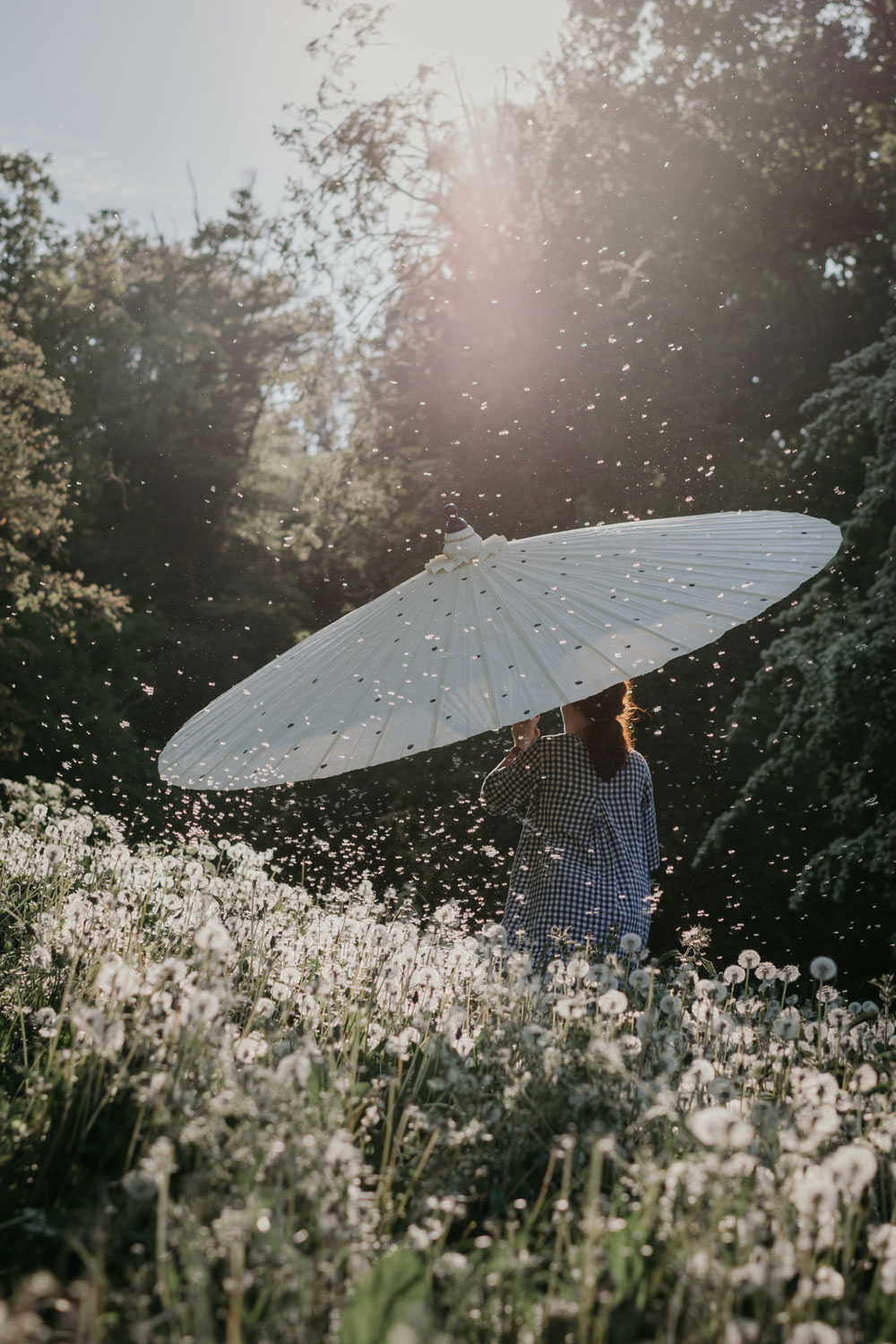
What’s our final take?
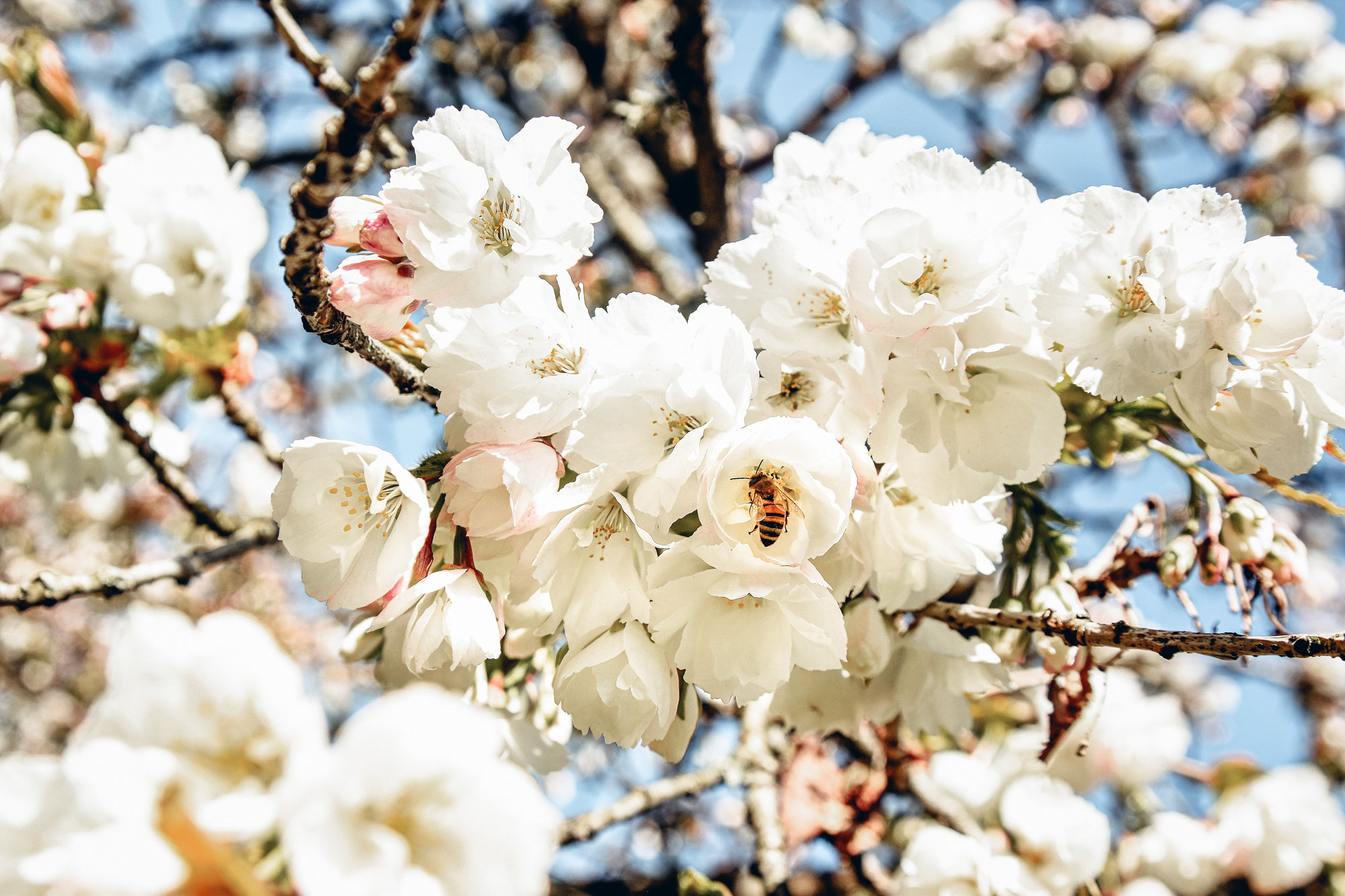
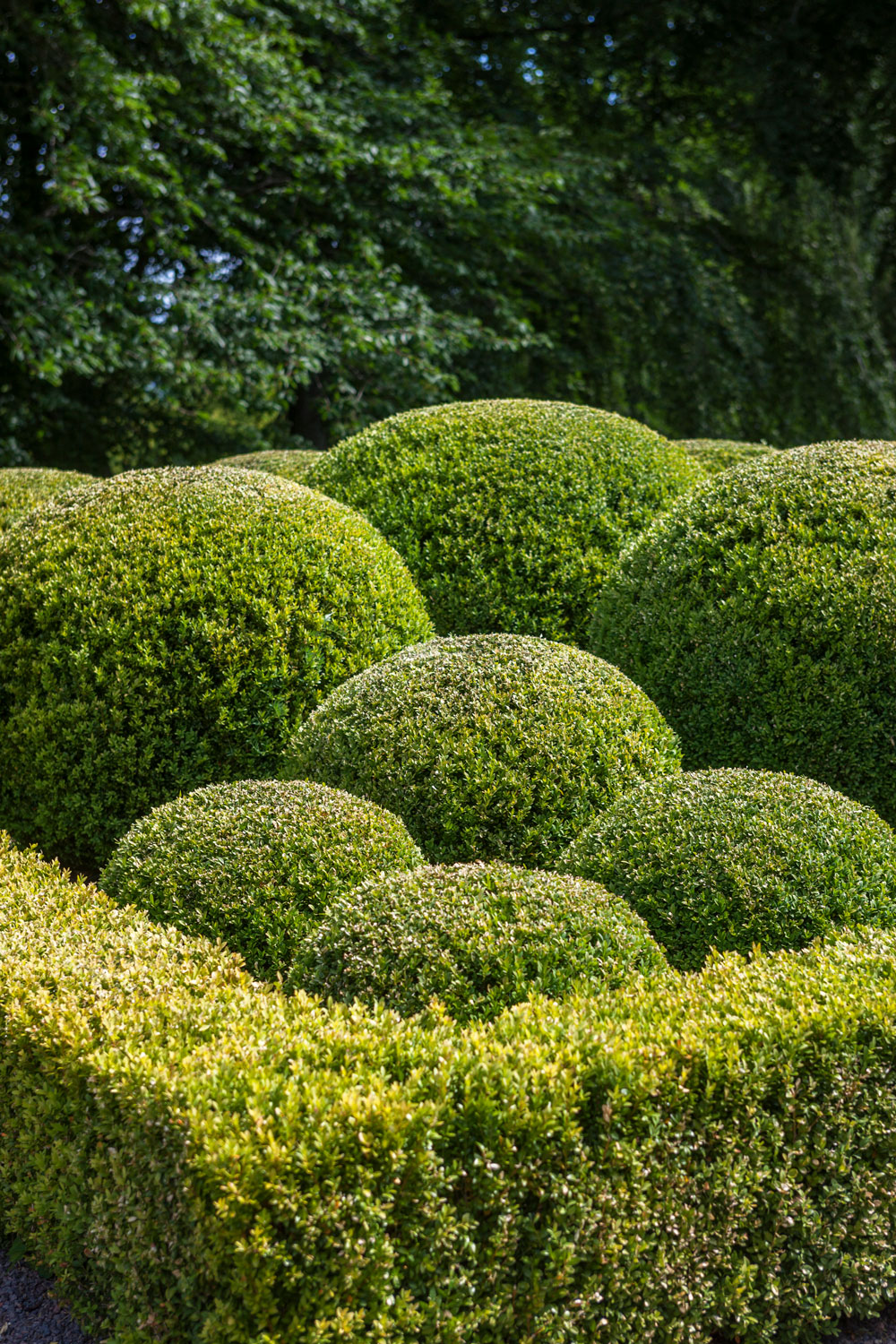
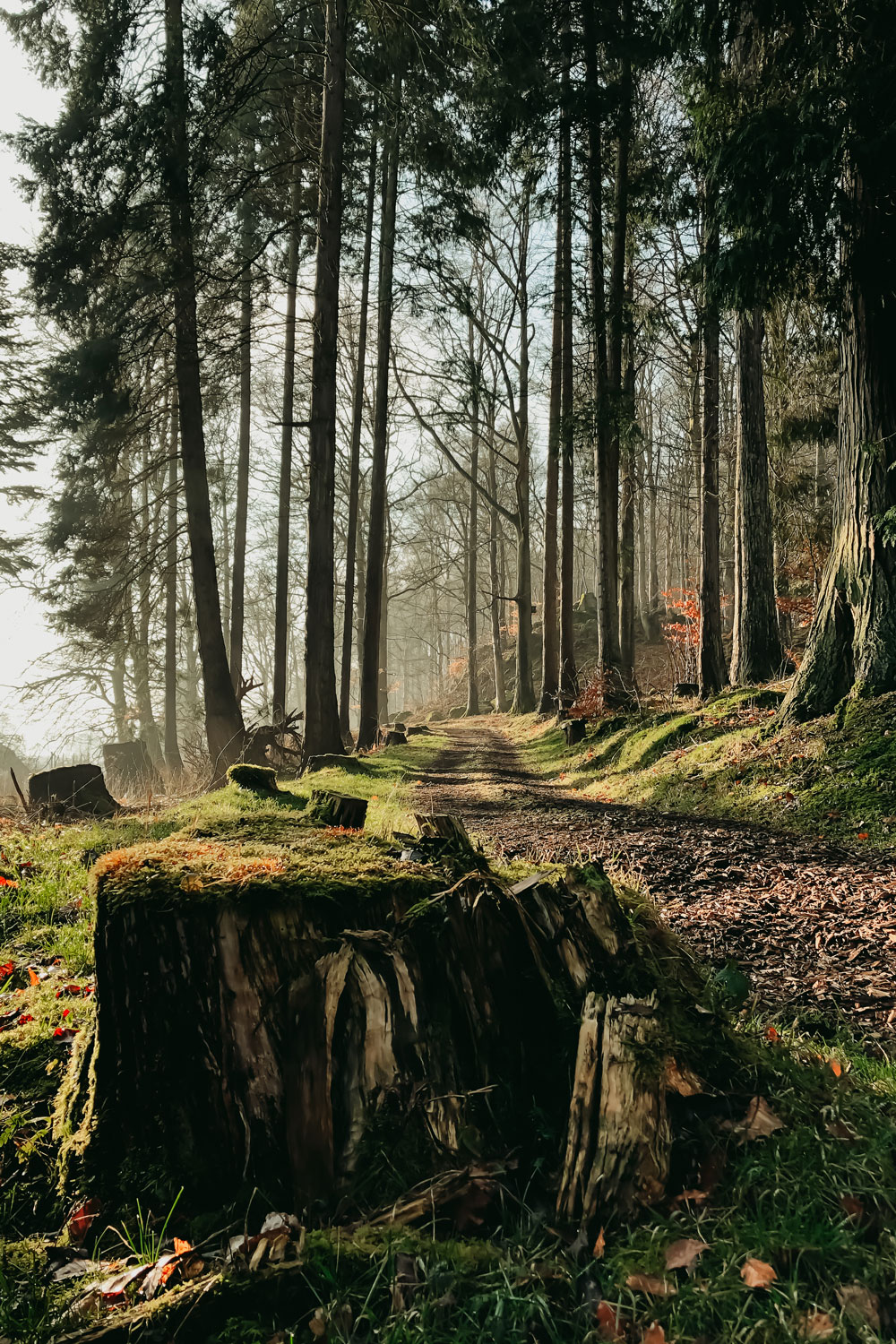
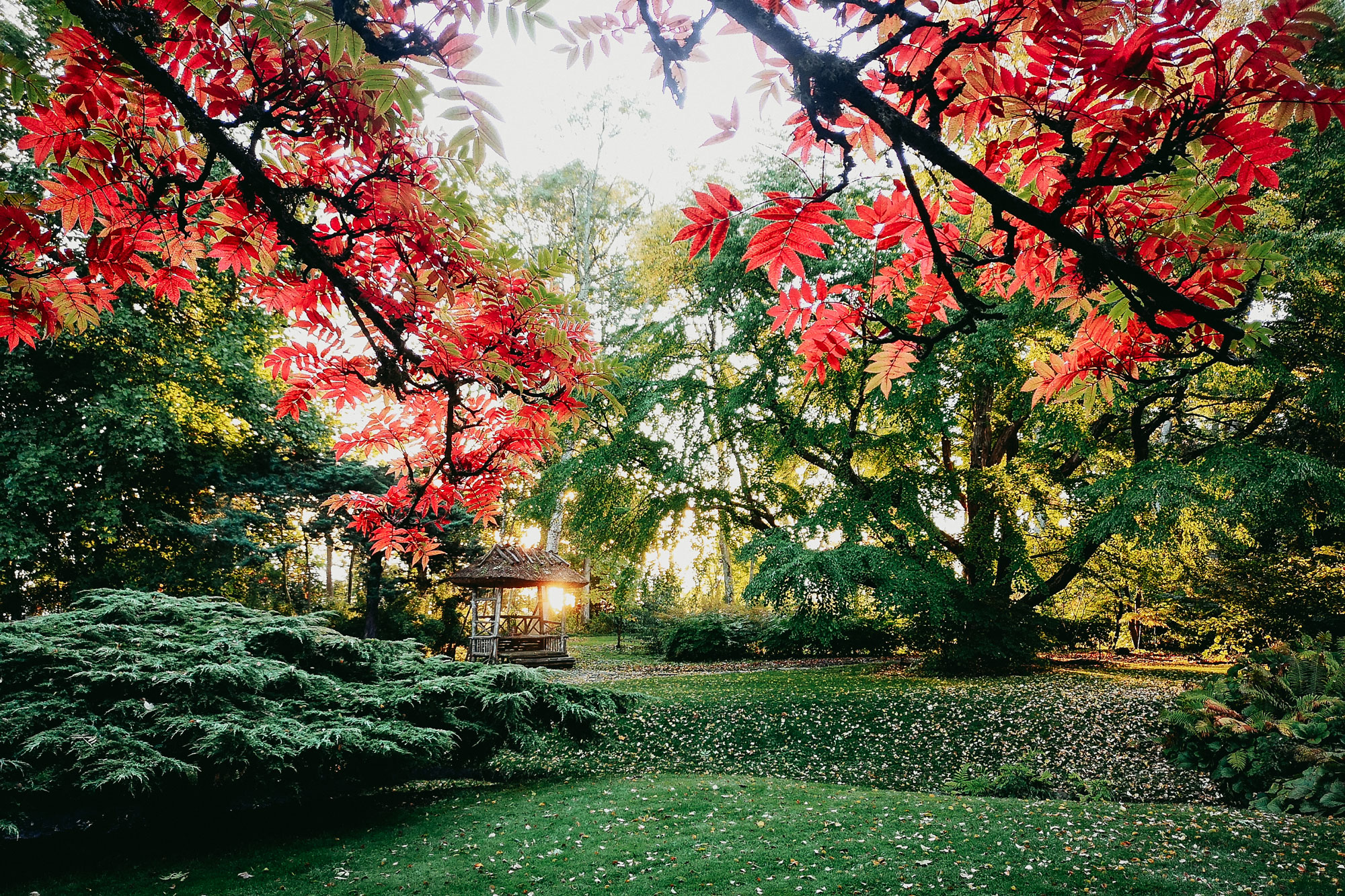
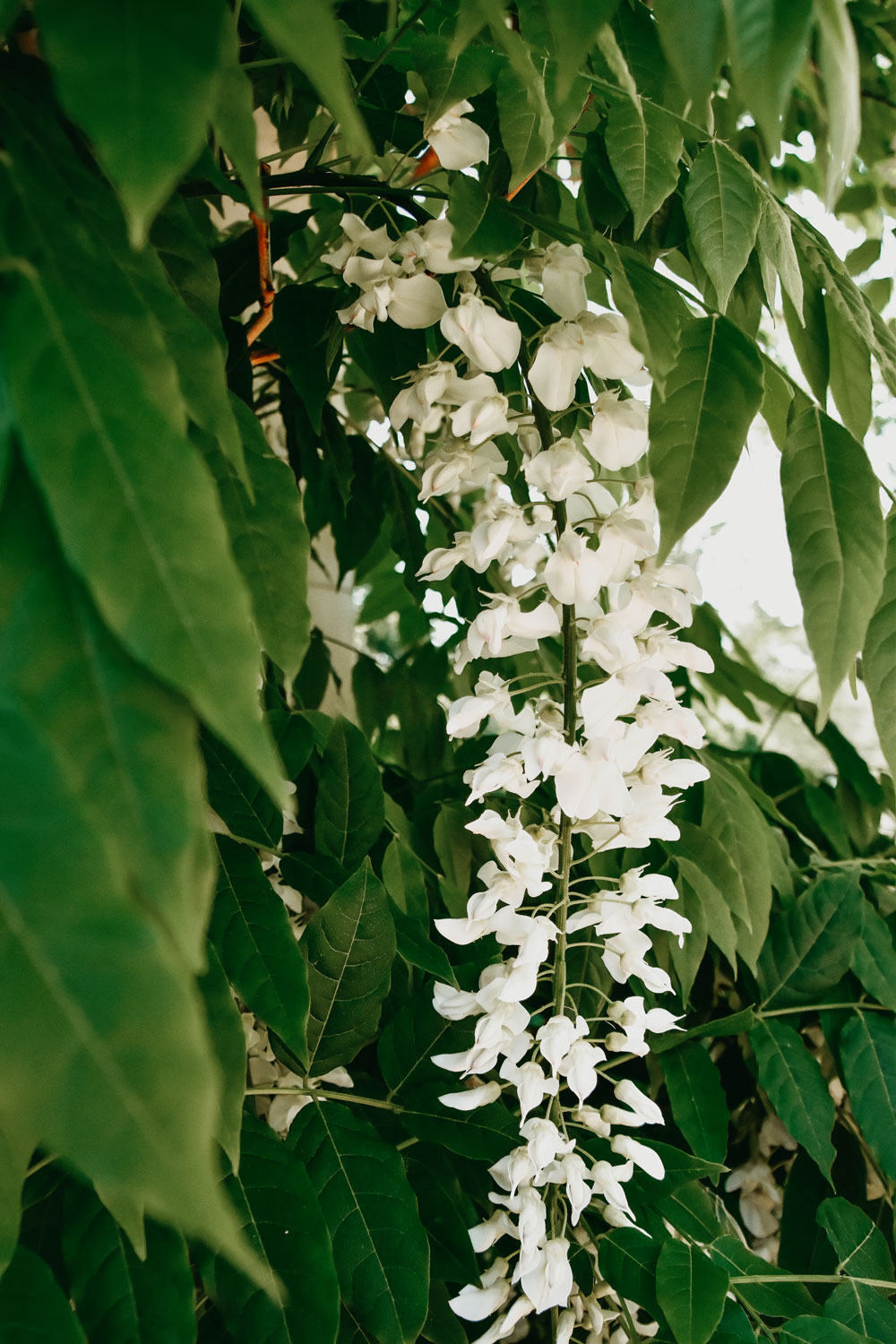
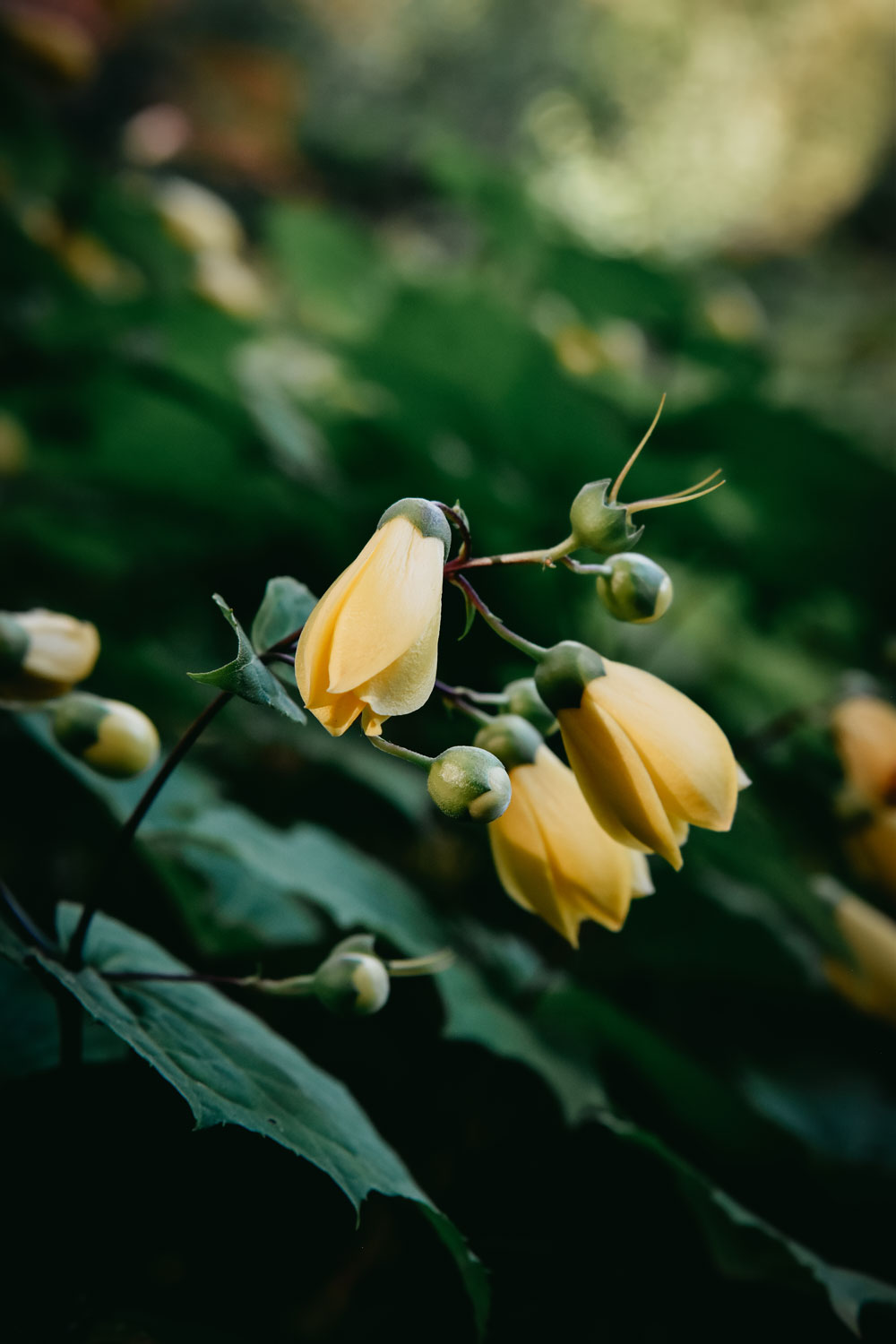
What’s the region like?
Skåne doesn’t try to compete with Sweden’s north or centre – it doesn’t need to. Down here, the land softens, the pace steadies and the Danish influence lingers in everything from dialect to architecture. The cities – Malmö, Lund and Helsingborg – carry their weight, but the real rhythm is rural: broad fields, Baltic light, beaches that stretch without interruption. Skåne feeds the rest of the country, literally. Seafood, root vegetables, berries, game – all of it shaped by a farm-to-table culture that predates the phrase. Art is quiet but present. Design leans functional. It’s not the Sweden of snow and fjäll. It’s something gentler. And far more interesting than it lets on.
Norrvikens Trädgårdar
Kattviksvägen 233
Båstad
Sweden
Photography courtesy of Anna Nyman and Norrvikens Trädgårdar

Urban
Rural

Trendy
Classic

Happening
Serene

Affordable
Lavish
Share this
Norrvikens Trädgårdar
Kattviksvägen 233
Båstad
Sweden
Photography courtesy of Anna Nyman and Norrvikens Trädgårdar

Urban
Rural

Trendy
Classic

Happening
Serene

Affordable
Lavish












